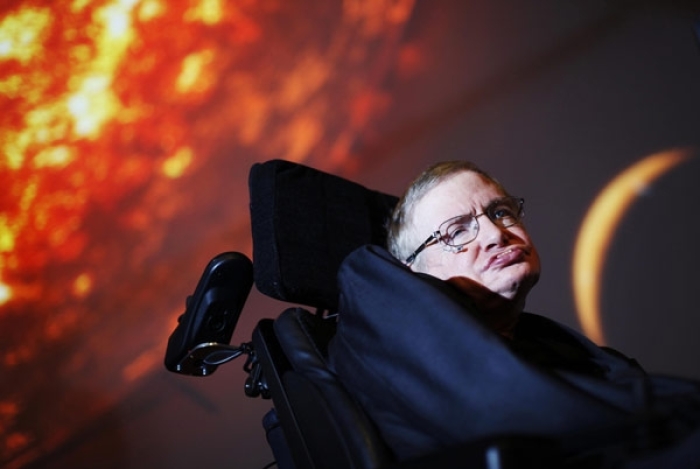Stephen Hawking Says 'God Particle' Could Destroy the Universe

Renowned physicist Stephen Hawking has warned that the Higgs boson, also known as the "God particle," is capable of destroying the universe if it happens to become unstable and thereby cause a "catastrophic vacuum decay" leading to the collapse of time and space.
In his preface to a new book, Starmus, which is scheduled to be released next month, Hawking, however, underlines that the possibility of the God Particle wiping out the universe is highly unlikely, according to U.K.'s The Sunday Times.
The Higgs boson is the particle, scientists say, that is responsible for mass in the standard model of physics.
"The Higgs potential has the worrisome feature that it might become metastable at energies above 100bn gigaelectronvolts," he says in the preface. "This could mean that the universe could undergo catastrophic vacuum decay, with a bubble of the true vacuum expanding at the speed of light. This could happen at any time and we wouldn't see it coming."
But this possibility alone is alarming, given that it points to a completely new realm of physics, he explains. "A particle accelerator that reaches 100bn GeV would be larger than Earth, and is unlikely to be funded in the present economic climate."
Last year, Hawking said he was left disappointed after the discovery of the God Particle, explaining that it has made physics less interesting.
He said this in a speech at the Science Museum in London, England, last November, in which he also claimed that humans have only have 1,000 years left on Earth.
"I don't think we will survive another thousand years without escaping beyond our fragile planet. I therefore want to encourage public interest in space," he said at the time.
Peter Higgs, the theoretical physicist who discovered the Higgs boson, attempted to describe the fundamental particle in the most basic way he could in an interview earlier this year.
"… These particles are just packages of energy of some kind of field," the scientist said on the BBC Radio 4 program, "The Life Scientific."
He continued: "And the feature [that] distinguishes this kind of theory, which leads to this kind of symmetry breaking, is the existence of what we, theoretical physicists, call the vacuum, which means nowadays something different from what it used to mean. It's just the lowest energy state that you could possibly have in which there are no particles around but there may be something around. And that something around can be a background field of some sort, which pervades the universe."
"In this theory, there is such a background field. And the background field, its interaction with all the other stuff that goes through, is responsible for generating the masses and mass differences of the other particles, elementary particles, [those] which are packages of all the energy in other fields. Simply because the background affects the way the waves propagate," Higgs added.
"But then, the field itself can be excited, or classically to give you waves to the packages of energy of that are the Higgs boson. So it's an extra, which comes with this type of theory, that you need to have something there, which is the excitation of the background field."




























